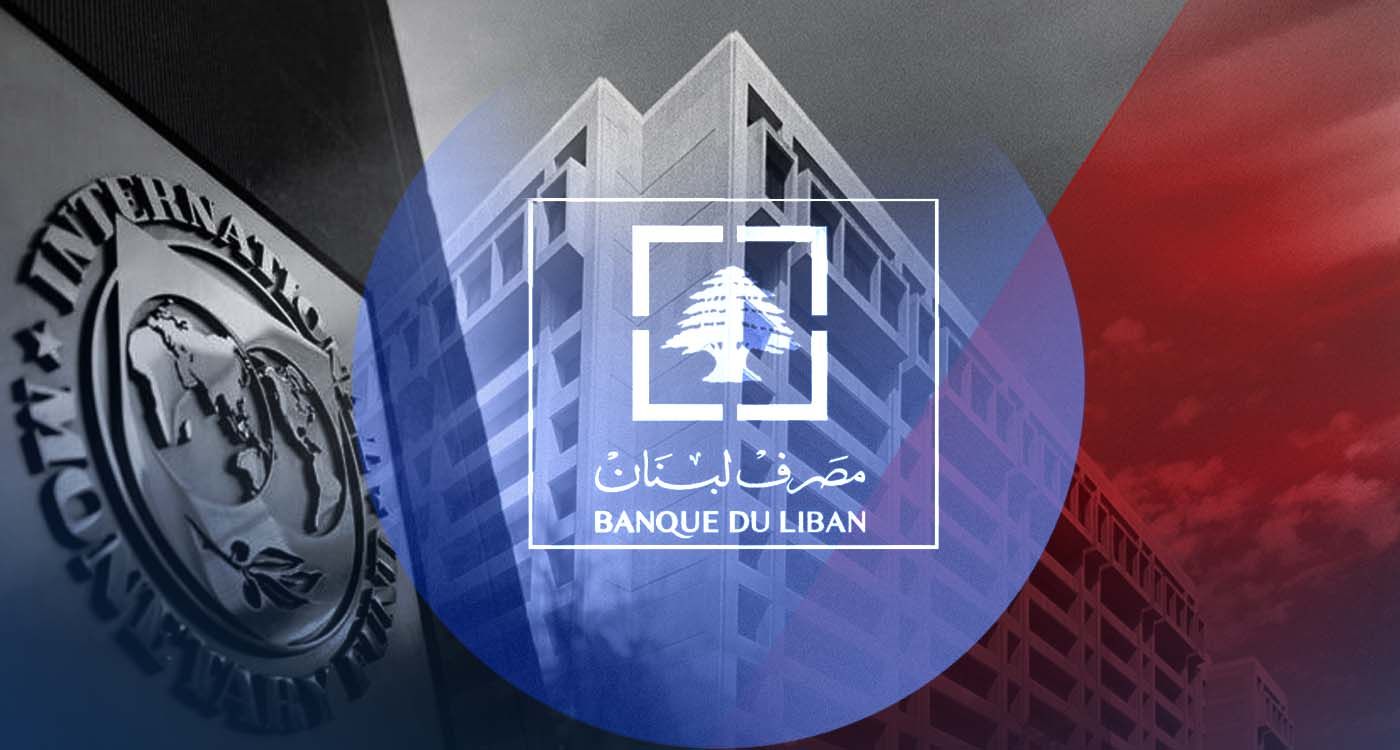
Banks and depositors are on the same side, and both have rights, as they are creditors of the state and the central bank. They cannot be bypassed in shaping solutions, nor can they be held responsible for a crisis caused by the state through its financial policies and reckless spending. The state is the main beneficiary of the crisis.
As the financial collapse continues and losses keep mounting with no clear plan yet for their distribution, attention is once again turning to the stalled negotiations between the Lebanese government and the International Monetary Fund (IMF), amid conflicting official approaches on how to address the crisis and restructure the banking sector.
The IMF does not take into account the complex specificities of the Lebanese situation, which differs fundamentally from other countries’ experiences. Strictly applying its recommendations could destroy what remains of the financial sector. This raises serious questions about the future of Lebanese banks, with proposals to restructure them or replace them with new ones alarming both depositors and employees in the sector and prompting questions about the feasibility of these ideas and their ability to restore confidence.
In this context, former Minister of Economy Raed Khoury explains to “Huna Lubnan” that “the IMF’s approach to the Lebanese crisis—which involves placing most of the losses on the banking sector and eliminating capital, banks, and deposits to pave the way for new banks—remains a theoretical proposal far from Lebanese realities.” Khoury said that “although the IMF is indeed seeking to place the bulk of losses on the banking sector, this does not mean that Lebanon will blindly follow its proposals. Every country has its own particularities, and external solutions cannot simply be copy-pasted onto a fundamentally different reality like Lebanon.”
He added, “The priority today is to unify Lebanon’s position—between the Ministry of Finance, the Ministry of Economy, the Central Bank, the Association of Banks, and the Prime Minister’s Office. The IMF deals with a single sovereign counterpart, not with rival factions. The more united and coherent the internal position, the stronger and more effective the negotiations will be. Experience has shown that the IMF has adjusted its stance several times when confronted by logical arguments and a clear vision serving the national economic interest.”
Khoury stressed that the IMF “is not an authority that can impose decisions, but a negotiating party where give-and-take is possible.” emphasizing that “the Fund itself acknowledges that the Lebanese crisis is unprecedented in the history of modern financial crises: the world has never witnessed a simultaneous collapse of the state, the central bank, and the banking sector as happened in Lebanon.”
He continued: “Therefore, the IMF cannot apply ready-made recipes that it used in other countries such as Argentina or Greece, because the circumstances are entirely different. In Argentina, for example, the central bank did not go bankrupt and did not default, whereas in Lebanon the situation is far more complex and intertwined.”
Regarding the consequences of any attempt to liquidate existing banks or replace them with new ones, Khoury described such a scenario as “catastrophic and destructive,” as it would sever relationships with correspondent banks abroad and close international accounts, leading to a complete paralysis of financial and economic activity in Lebanon. “Creating new banks will not be a magic solution,” he said, “because restoring confidence and international relations takes many years.” He pointed out that “Lebanese banks are not merely financial institutions; they are a foundational pillar of the national economy, employing about 15,000 families and possessing decades of accumulated expertise. This structure cannot simply be erased with the stroke of a pen or through an improvised scheme.”
Regarding the bank restructuring law, Khoury noted that “the law was passed by Parliament after a partial appeal was accepted, making it legally valid. In practice, it is tied to the approval of the financial-gap law, which is still under discussion between the government and the IMF.” He added, “The recent amendment to the draft by the Cabinet and its referral back to Parliament reveals a flaw in respecting institutional processes.”
Khoury strongly criticized the exclusion of representatives of the banking sector and depositors from discussions about the sector’s future, saying, “Banks and depositors are on the same side, and both have rights, as they are creditors of the state and the central bank. They cannot be excluded from shaping solutions, nor can they be held responsible for a crisis caused by the state through its financial policies and reckless spending.” He added, “The state is the biggest beneficiary of the crisis: it has effectively reduced its dollar debt (Eurobonds of $33 billion) and its lira debt by billions more, in addition to the decline in public-sector salaries, while depositors and banks have paid the real price.”
Khoury concluded that “any serious approach to the crisis must be based on dialogue and partnership with those entitled to rights—namely, depositors and banks. Drafting laws without involving them means underestimating them and disregarding justice. Unilateral solutions will not restore confidence; they will deepen the collapse and keep Lebanon trapped in a cycle of lost credibility.”



Comments